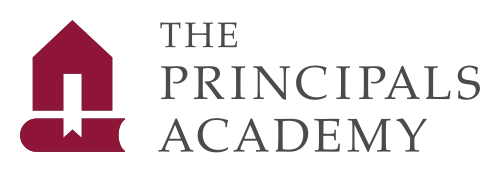Getting Better
Every glossy magazine is full of self-help articles aimed at getting you healthier, thinner and fitter. We’ve all tried each of these degrees of comparison and what stands out is just how hard it is to get better at whatever. Getting better as a principal or teacher is just that – hard. It doesn’t just happen automatically with experience. It happens with a plan, a growth mindset and a willingness to do the work.
The first wise move is to take ownership of our own professional development as principal or teacher. Your school, your district, the WCED, the CTLI all provide opportunities for development, but the decision to get better today and tomorrow is ours. Think about it. Surely, we want our child’s teacher and principal to be smart, talented, creative, collegial and wise. Having an unfortunately unmotivated or tired teacher for even just one year will set our children back considerably.
The second move is to find a partner or two. Teachers get better together. Commit together and share your journey, your small wins, your next steps. Peer teachers are, without doubt, the strongest drivers of better teaching in a winning school.
It is generally accepted that to get better, South African teachers need to focus on three key areas. The first is building high quality knowledge of the content. Imagine having a high school Gr9 Mathematics teacher who knows less than the Gr12 Mathematics learners. The challenge is to become an expert in your subject, even if only at school level. There are so many resources to do this. The same applies to the methods and drills to drive successful literacy teaching in Gr1. A careful look at a marker’s report or systemic result will put you on the right track.
Secondly, we need to make better use of the 40 or 45 minutes allocated to you as the teacher. We get better by developing strategies and practices which maximise quality teaching and active and engaged learning time. Less functional schools lose valuable minutes every lesson which add up to hundreds of never to be regained teaching hours. This is the single biggest difference between schools on a functionality index.
Thirdly, most schools need to dramatically increase the number of daily opportunities learners get to express themselves meaningfully in writing and to interact daily with texts which build their capacity in reading and writing proficiency. Just working towards a daily increase in these practices will drive real improvement. Three simple words which schools can use to ensure that we are getting better where it counts: Teachers (strengthening content knowledge and skills), Time and Text.
It makes sense that to get better one has to see what better looks like. Ask to visit a principal you admire or observe in the classroom of a teacher with a reputation for excellent practice. Young sports personalities spend hours online watching the pros in action. They watch frame by frame and isolate a drill which they tackle hundreds of times in a day. In the same way we can watch teachers on YouTube, focus on the resources they use, the methods they apply, and, slowly and intentionally, make their skills our own.
What did I learn from other principals? I remember being motivated by the simple procedures the best principals used in preparing to see parents who had made an appointment with the principal – having all the right data in one place and having practical feedback in advance from teachers.
I learned from the best how important it was to understand that a governing body needed a steward – usually the principal – to have all the information ready, to know the processes necessary, to anticipate actions required to make the right decisions in terms of policies, budgets, appointments and developments. I went to find examples of how principals compiled quarterly reporting and analysis to governors in advance of a meeting and how principals put together an excellent annual report to parents. I copied no one. I learned from many and devised solutions which suited the school and the community I served.
We all searched for the very best initiatives to improve teaching in the STEM subjects, to take our teachers to world class levels of professional practice, to promote entrepreneurship and to lead the way in 21st century skills development. We looked at the best models, adapted them for our individual contexts and tried them out – first with one year group, and, learning from that experience, with the next.
PAT principals have a clear advantage. They lead by example. They commit to a coaching relationship and to modern management and leadership training at UCT’s GSB. They contribute to a positive school culture which stresses lifelong learning and peer to peer collaboration.
Till next time.
Paul
Coach/Mentor
The Principals Academy Trust
No: 09/24
06 June 2024
